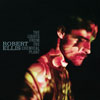ROBERT ELLIS : THE LIGHTS FROM THE CHEMICAL PLANT
- TV Song
- Chemical Plant
- Good Intentions
- Steady as the Rising Sun
- Bottle of Wine
- Still Crazy After All These Years
- Pride
- Only Lies
- Houston
- Sing Along
- Tour Song
Label : New West Records
Release Date : February 11, 2014
Length : 53:59
Review (AllMusic) : Since New West released Photographs in 2011, Robert Ellis' reputation has spread internationally. These days he plays European festivals as well as Texas honky tonks. He moved to Nashville from Houston in 2012. Given the growth in his songwriting on The Lights from the Chemical Plant, it was the right choice. The album is exquisitely produced and mixed by Jacquire King; it's refined, not slick. He illustrates Ellis' elusive, emotionally evocative songs, expanding their sonic reach to blur genre boundaries. Though he and Ellis embraces the sounds of Nashville's and Americana's pasts, they look forward, making use of rock and pop wherever it makes sense. "TV Song" is be a novelty tune, but it recalls the savvy of of Roger Miller and Tom T. Hall. "Chemical Plant" narrates a story of young lovers who cling together as life changes around them and years pass; but there is no escaping death. Electric guitars, tom-toms, and strings elevate the song to near cinematic proportions, but never indulges them. The melody in "Steady as the Rising Sun" suggests Harlan Howard. A tender yet almost melancholy love song, the rhythm section's syncopated backbeat on the coda introduces a whining pedal steel, sweeping strings and a backing chorus by Dawes' Goldsmith Brothers. "Bottle of Wine" paraphrases Billy Joel's "Scenes from an Italian Restaurant." Fueled by a reverbed, slightly out of tune piano, the protagonist sings to an absent other in an empty room, accompanied only his beverage and a bag of cocaine. Paul Simon's "Still Crazy After All These Years" is poignantly and darkly rendered with a killer guitar break. "Pride," "Only Lies," and "Houston" (the last with a knotty, screaming, extended prog rock outro!) make use of country and blues in the same way Danny O'Keefe did on his first two albums: tangentially, integral parts of a larger musical palette. (Ellis' voice also bears a spooky resemblance to O'Keefe's.) Narratively, these songs paint haunted silhouettes of emptiness, loneliness, and desolation. "Tour Song," the sparse acoustic closer, features is a traveling musician protagonist. He confesses paranoia and fear speculating about possible infidelity from his wife while he's away. He's ultimately resigned to it as the cost of his chosen profession, butdeals with it by way of nightly oblivion. The Lights from the Chemical Plant is an inspired, mercurial record, by an artist who cares deeply for tradition, but refuses to be bound by it.
